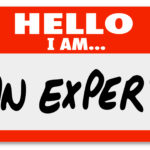Will you be my mentor?
This question makes me cringe. It’s not that I don’t want to help. I do—I really do. It’s just that when someone asks me to be their mentor, I don’t know what I’m signing up for. The question feels like a marriage proposal from someone I’ve never met, an indefinite labor contract with unspecified terms of service, and a giant pile of responsibility on an already full plate.
But I understand where people are coming from. We’ve been spoon-fed the idea that finding a mentor is a prerequisite for success. Countless business books and self-help guides preach the importance of a good mentor. Under this image we have nurtured, a mentor takes a mentee under their wing, like Socrates and Plato, Steve Jobs and Mark Zuckerberg, and Mr. Miyagi and Daniel. The relationship then blossoms, and the mentee achieves philosophical greatness, makes billions, or wins the All Valley Karate Championship.
I hate to be a buzzkill, but this isn’t how things work in real life. We wait for a good mentor to arrive like a prophet, whisk us from our canyon of despair, and push us up the ladder of success. But that mentor often doesn’t come, at least not in the form that we’re expecting. We then use the lack of a mentor as an excuse for not getting started.
The solution to this quandary appears in a scene in Good Will Hunting, one of my favorite movies. In the scene, Sean McGuire, the therapist played by Robin Williams, asks Matt Damon’s genius character, Will Hunting, if he has a soulmate—someone who challenges him.
After some meandering, Will replies: “I got plenty. Shakespeare, Nietzsche, Frost, O’Connor, Kant, Pope, Locke.” Sean mocks this answer: “That’s great. They’re all dead.” Undeterred, Will says: “Not to me, they’re not.”
Will is on to something. We assume our soulmates and sources of inspiration have to be real-life mentors who are a quick phone call or an email away. But that assumption is false. As Elizabeth Gilbert writes, mentors “live on the shelves of your library; they live on the walls of museums; they live in recordings made decades ago.”
No one has taught me more about democracy than the Czech writer and politician Vaclav Havel. He’s not alive. No one has taught me more about writing than Stephen King. I’ve never met him. No one has taught me more about humility than the Roman emperor Marcus Aurelius. He’s been fertilizing daffodils for nearly two thousand years. No one has inspired me more about leveraging failure for success than Sara Blakely. I saw her on the television show Billions once, but our paths have never crossed.
All I had to do to learn from these incredible people, and many others like them, was to study their lives. Take, for example, Stephen King. I treat his fiction like a textbook. I highlight, underline, circle, and review. I’ve learned more from studying his writing than I ever could from a formal “mentoring” session where I would ask him if he has any advice on writing (to which he would probably respond, “Go read my books.”).
You can channel the power of these teachers without holding a seance. Pick your favorite source of inspiration and ask yourself this question: What would they do if they were in my shoes? What would Elon Musk do when faced with this challenge? How would Elizabeth Gilbert tackle this creativity problem? How would Jane Austen develop the character in my novel? If you’ve done your homework, and studied their works, you’ll know what the answer is.
So, to those of you looking for real-life mentors, I say, stop looking.
Your mentors are already all around you.
You just have to open your eyes to see them.
Bold



